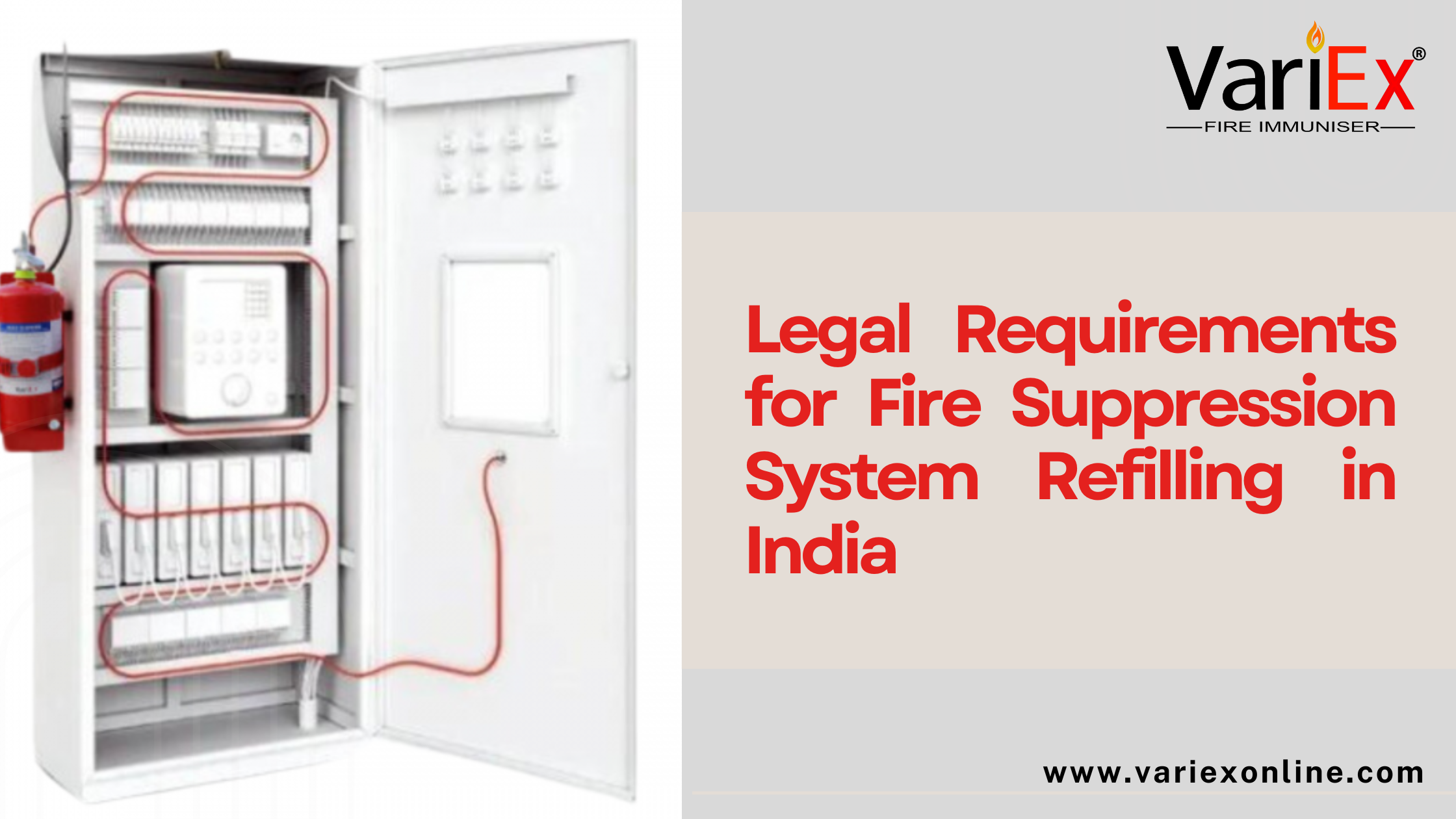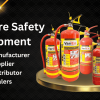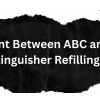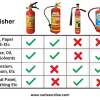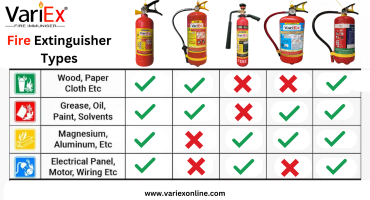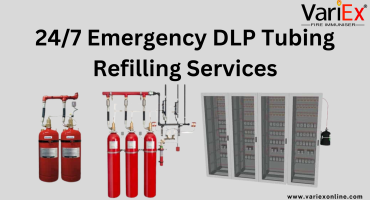![]()
Fire Immuniser
+91-7829629111
Email: info@variex.in
Varistor Technologies Pvt. Ltd.
Block-1, First Floor, Ardente Office One, Hoodi Circle, ITPL Main Road, Bengaluru, Karnataka 560048, IN
Legal Requirements for Fire Suppression System Refilling in India
Legal Requirements for Fire Suppression System Refilling in India
Fire suppression systems are a vital part of fire protection strategies for commercial, industrial, and public buildings. In India, having such systems in place is not only a safety necessity but also a legal mandate. However, many building owners and facility managers overlook one critical aspect—refilling and maintaining these systems as per legal requirements.
In this comprehensive guide, we break down the legal requirements for fire suppression system refilling in India, including timelines, applicable standards, inspection protocols, and penalties for non-compliance. Whether you manage a hospital, manufacturing unit, data center, or a commercial kitchen, this article is tailored to help you stay compliant and fire-ready.
Why Refilling Fire Suppression Systems is Legally Mandatory
Fire suppression systems are only effective when they are fully charged and functional. A discharged or partially-filled system is not just a hazard—it’s a violation of Indian fire safety laws.
Key reasons refilling is legally required:
-
To ensure life and property safety
-
To comply with fire license conditions
-
To meet insurance policy obligations
-
To avoid fines, shutdowns, and legal action
Neglecting refilling can result in prosecution under the Indian Penal Code (IPC), National Building Code (NBC), and rules set by the local Fire Services Department.
Table: Legal Framework Governing Fire Suppression Refilling in India
| Regulation / Standard | Applicability | Key Requirement | Enforcement Authority |
|---|---|---|---|
| National Building Code of India (NBC) 2016 | All building types | Mandates periodic testing and refilling of suppression systems | Bureau of Indian Standards (BIS) |
| IS Codes (IS 2190, IS 15683, IS 16018, etc.) | Portable and fixed suppression systems | Specifies refill timelines and procedures for each system | Bureau of Indian Standards (BIS) |
| Factories Act, 1948 | Industrial and manufacturing establishments | Requires functional fire-fighting systems and regular upkeep | Chief Inspector of Factories |
| Fire Services Act (State-wise) | Commercial, residential, public buildings | Requires annual fire NOC, includes refill documentation | Local Fire Department |
| Insurance Regulatory and Development Authority of India (IRDAI) Guidelines | All insured commercial properties | Non-functional systems may void fire insurance claims | IRDAI and Insurance Companies |
Key Standards and Codes You Must Follow
-
NBC 2016 – Part 4 Fire and Life Safety
-
Mandates regular inspection and maintenance of fire suppression systems
-
Requires functional systems for fire NOC issuance and renewal
-
-
IS 2190:2010 (Code of Practice for Selection, Installation, and Maintenance of Portable First-Aid Fire Extinguishers)
-
States that extinguishers must be recharged after every use or annually if unused
-
-
IS 15683:2006 (For Portable Extinguishers)
-
Describes periodic refilling based on agent type (CO₂, foam, powder, etc.)
-
-
IS 16018:2012 (For Clean Agent Fire Suppression Systems)
-
Outlines installation and maintenance, including pressure checks and agent recharge
-
-
State Fire Service Rules
-
Vary by state but often require annual inspections and valid fire safety certificates (NOC)
-
Refill Frequency as per Indian Standards
| Fire Suppression System Type | Refilling Requirement (India) | Reference Standard |
|---|---|---|
| CO₂ Fire Suppression System | After discharge or 5 years (hydrostatic test) | IS 15222, IS 16018 |
| FM-200 and Clean Agent Systems | Post-discharge and annual pressure checks | IS 16018:2012 |
| Wet Chemical Systems | Every 6 months or after any activation | NBC 2016 + IS guidelines |
| Dry Chemical Systems | After activation; internal check every 6 years | IS 15683 |
| AFFF Foam-Based Systems | After use or every 1–3 years, depending on quality | IS 4989, NBC guidelines |
Required Documentation for Compliance
To demonstrate compliance with legal requirements, maintain:
-
Refill service certificates from licensed vendors
-
Inspection and testing reports
-
Calibration logs for automatic systems
-
Updated fire safety logbooks
-
Annual Fire NOC from local fire department
-
Insurance policy stating system functionality confirmation
These documents are essential for inspections, audits, and insurance claims.
Penalties for Non-Compliance
Ignoring refilling requirements can result in:
-
Revocation of fire NOC or occupancy certificate
-
Hefty fines (ranging from ₹25,000 to ₹2,00,000 depending on jurisdiction)
-
Business closure orders from fire authorities
-
Criminal liability under IPC Section 285 (negligence likely to cause fire)
-
Rejection of fire-related insurance claims
How to Stay Legally Compliant
-
Hire Licensed Fire Protection Service Providers
Ensure the agency is approved by your state’s fire services and follows BIS/IS standards. -
Use Only ISI-Certified Equipment and Agents
Fire suppression agents and systems must conform to IS standards for legal validity. -
Maintain a Refill and Inspection Logbook
Keep physical and digital logs of maintenance and refills with signatures and dates. -
Renew Fire NOC Annually
Submit all documents including refill certificates for approval. -
Conduct Fire Drills and System Testing
Required quarterly or bi-annually in many Indian states.
State-Wise Variation in Enforcement
While central standards like NBC and IS codes provide the baseline, each state has its own Fire Services Act or Rules. For example:
-
Maharashtra Fire Prevention and Life Safety Measures Act, 2006 mandates quarterly inspection and proof of refill.
-
Delhi Fire Service Rules require submission of an affidavit and refill proof annually.
-
Tamil Nadu Fire and Rescue Services require documented refills before renewing building licenses.
Always check with your local fire department for area-specific regulations.
Role of Insurance Providers
Most insurance companies now include clauses that void fire damage claims if the suppression system was not maintained or refilled. Insurers may request:
-
Valid fire NOC
-
Maintenance and refill records
-
Service contracts with certified vendors
Failure to provide these documents can result in denied claims, even for minor incidents.
Conclusion
Fire suppression system refilling in India is not just a good practice—it’s a legal requirement enforced under the NBC, BIS IS codes, and various state-level regulations. Whether you’re running a manufacturing plant, IT park, hospital, or commercial complex, refilling and maintaining your suppression systems can save lives, protect assets, and ensure legal and insurance compliance.
Don’t leave safety to chance. Establish a documented, recurring inspection and refill schedule, work with certified professionals, and maintain airtight compliance with India’s fire safety laws.
Frequently Asked Questions
Yes, most systems require at least annual inspection and refilling as per IS codes and NBC 2016 guidelines.
Only licensed and certified fire safety service providers approved by local fire departments and BIS.
This is a sample text. You can click on it to edit it inline or open the element options to access additional options for this element.
Yes, proper documentation is essential for audits, fire NOC renewals, and insurance claims.
Yes, while NBC and IS codes apply nationally, enforcement rules vary by state and local fire authority.
Final Say
At VariEx.in and VariexOnline.com, we specialize in supplying and installing top-quality fire fighting systems and equipment. From fire extinguishers to advanced suppression systems, we offer comprehensive solutions tailored to your needs. Our experienced team ensures precise installation and maintenance for optimal safety.
Trust VariEx for reliable fire protection. Contact us online or call 7829629111 to learn more.
We specialize in manufacturing, supplying, and distributing a comprehensive range of fire fighting equipment, including state-of-the-art fire extinguishers. Read our most searched blogs and find interesting information on topics such as how to use a fire extinguisher, how to calculate fire fighting water tank capacity, fire extinguisher refilling, obtaining a Fire NOC, understanding fire fighting systems, types of fire protection systems, the fire hydrant system, and the fire sprinkler system. These resources provide essential knowledge for ensuring safety and compliance with fire safety regulations. Additionally, you can explore guides on the maintenance of fire protection equipment, the latest advancements in fire safety technology, and best practices for fire risk assessment and management.
Our expertise extends to fire alarm systems, fire hydrant systems, and fire suppression systems, including fire sprinklers. Each product meets rigorous international standards for reliability and performance, ensuring effective fire safety products tailored to diverse applications and industries. Additionally, we are providing Fire Extinguisher Refilling and AMC services to ensure ongoing maintenance and operational readiness of fire safety equipment.
"WHAT YOU CAN READ NEXT"
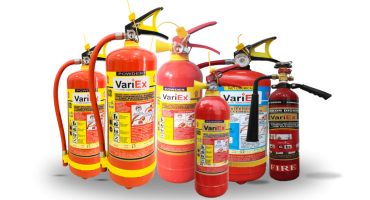 Read more +24 November 2023 in Fire Extinguisher
Read more +24 November 2023 in Fire ExtinguisherWhat types of fire extinguishers are available for different fire classes?
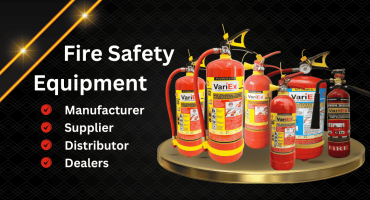 Read more +09 February 2026 in Fire Extinguisher
Read more +09 February 2026 in Fire ExtinguisherFire Extinguisher Near Me: Find Trusted Dealers and Certified Services
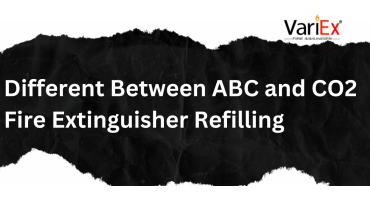 Read more +28 January 2026 in ABC Fire Extinguisher, CO2 Fire Extinguisher, Fire Extinguisher, Fire Fighting System, Fire Safety Equipment
Read more +28 January 2026 in ABC Fire Extinguisher, CO2 Fire Extinguisher, Fire Extinguisher, Fire Fighting System, Fire Safety Equipment

